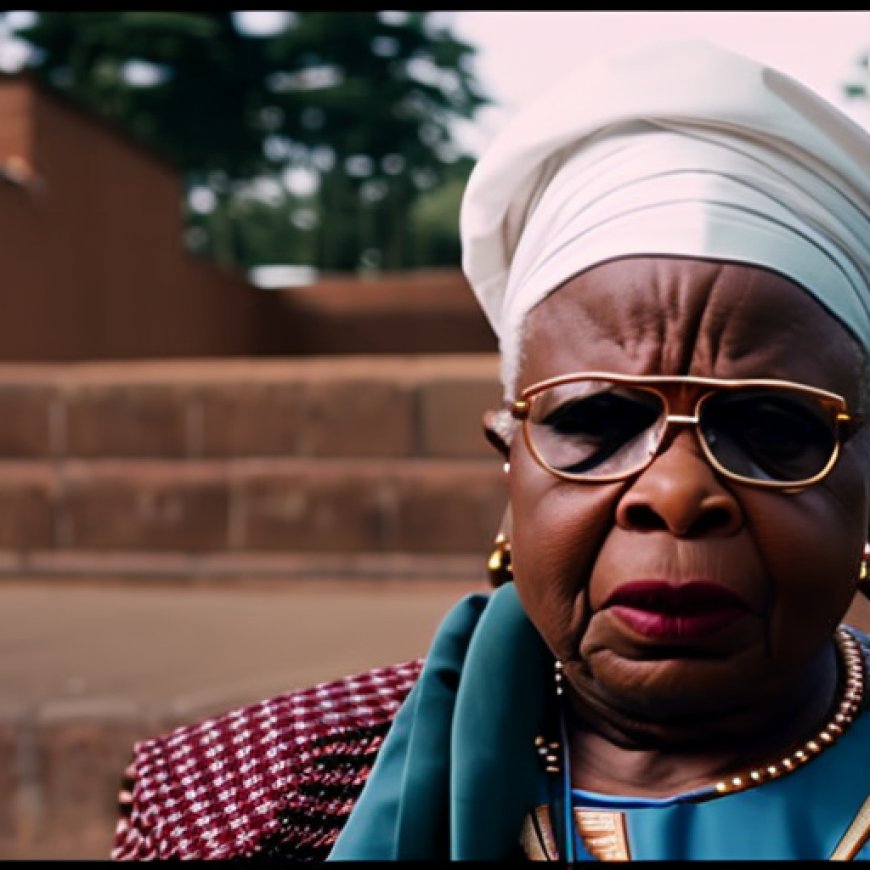Over 17.5m PWDs require basic education – Lalu – News Agency of Nigeria
Over 17.5m PWDs require basic education – Lalu News Agency of Nigeria


Over 17.5 Million Persons With Disabilities Require Basic Education – Lalu

Spread the love
By Ahmed Ubandoma
No fewer than half of the 35.5 million population of Persons With Disabilities (PWD) across the country require basic education to meet up with their counterparts across the globe.
Introduction
James Lalu, the Executive Secretary of the National Commission for Persons with Disabilities (NCPWD), revealed this information during a meeting with Mrs Rakiya Abubakar, the President of Nigeria Airforce Officers Wives Association (NAFOWA) at the Commission’s headquarters in Abuja.
Sustainable Development Goals (SDGs)
- Goal 4: Quality Education
Lalu emphasized that disability issues are a significant concern that requires collective efforts to improve the quality of life for PWDs. He expressed the readiness of the commission to collaborate with NAFOWA in areas such as educational advancement and other social inclusion needs of PWDs.
- Education: The commission aims to improve the quality of education for PWDs.
- Healthcare: The commission strives to enhance healthcare services for PWDs.
- General Wellbeing: The commission is committed to improving the overall wellbeing of persons with disabilities.
Lalu stated, “We hope and believe that this collaboration will lead to the improvement of the quality of life for 35.5 million persons with disabilities across the disability communities in Nigeria.”
NAFOWA’s Commitment
Mrs Rakiya Abubakar, the President of NAFOWA, reiterated the association’s commitment to strengthening partnership and advocacy for inclusive education for PWDs. NAFOWA has been at the forefront of mainstreaming disability inclusion for people with social needs.
Abubakar emphasized, “It is our firm belief that everyone, especially persons with disabilities, deserves the opportunity to reach their full potential.” She also highlighted NAFOWA’s focus on establishing a special school for people with special needs, offering education and therapeutic services to help PWDs unlock their potentials.
Conclusion
The partnership between the National Commission for Persons with Disabilities and NAFOWA is expected to yield positive outcomes in the lives of PWDs in Nigeria.
Source: NAN
Edited by Rotimi Ijikanmi
SDGs, Targets, and Indicators
| SDGs | Targets | Indicators |
|---|---|---|
| SDG 4: Quality Education | 4.1 By 2030, ensure that all girls and boys complete free, equitable and quality primary and secondary education leading to relevant and effective learning outcomes | Indicator not mentioned in the article |
| SDG 3: Good Health and Well-being | 3.8 Achieve universal health coverage, including financial risk protection, access to quality essential health-care services and access to safe, effective, quality and affordable essential medicines and vaccines for all | Indicator not mentioned in the article |
| SDG 10: Reduced Inequalities | 10.2 By 2030, empower and promote the social, economic and political inclusion of all, irrespective of age, sex, disability, race, ethnicity, origin, religion or economic or other status | Indicator not mentioned in the article |
1. Which SDGs are addressed or connected to the issues highlighted in the article?
The SDGs that are addressed or connected to the issues highlighted in the article are SDG 4: Quality Education, SDG 3: Good Health and Well-being, and SDG 10: Reduced Inequalities.
2. What specific targets under those SDGs can be identified based on the article’s content?
Based on the article’s content, the specific targets that can be identified are:
- Under SDG 4: Quality Education, the target is to ensure that all girls and boys complete free, equitable and quality primary and secondary education leading to relevant and effective learning outcomes by 2030.
- Under SDG 3: Good Health and Well-being, there is no specific target mentioned in the article.
- Under SDG 10: Reduced Inequalities, the target is to empower and promote the social, economic and political inclusion of all, irrespective of age, sex, disability, race, ethnicity, origin, religion or economic or other status by 2030.
3. Are there any indicators mentioned or implied in the article that can be used to measure progress towards the identified targets?
No indicators are mentioned or implied in the article that can be used to measure progress towards the identified targets.
Copyright: Dive into this article, curated with care by SDG Investors Inc. Our advanced AI technology searches through vast amounts of data to spotlight how we are all moving forward with the Sustainable Development Goals. While we own the rights to this content, we invite you to share it to help spread knowledge and spark action on the SDGs.
Fuente: nannews.ng

Join us, as fellow seekers of change, on a transformative journey at https://sdgtalks.ai/welcome, where you can become a member and actively contribute to shaping a brighter future.







